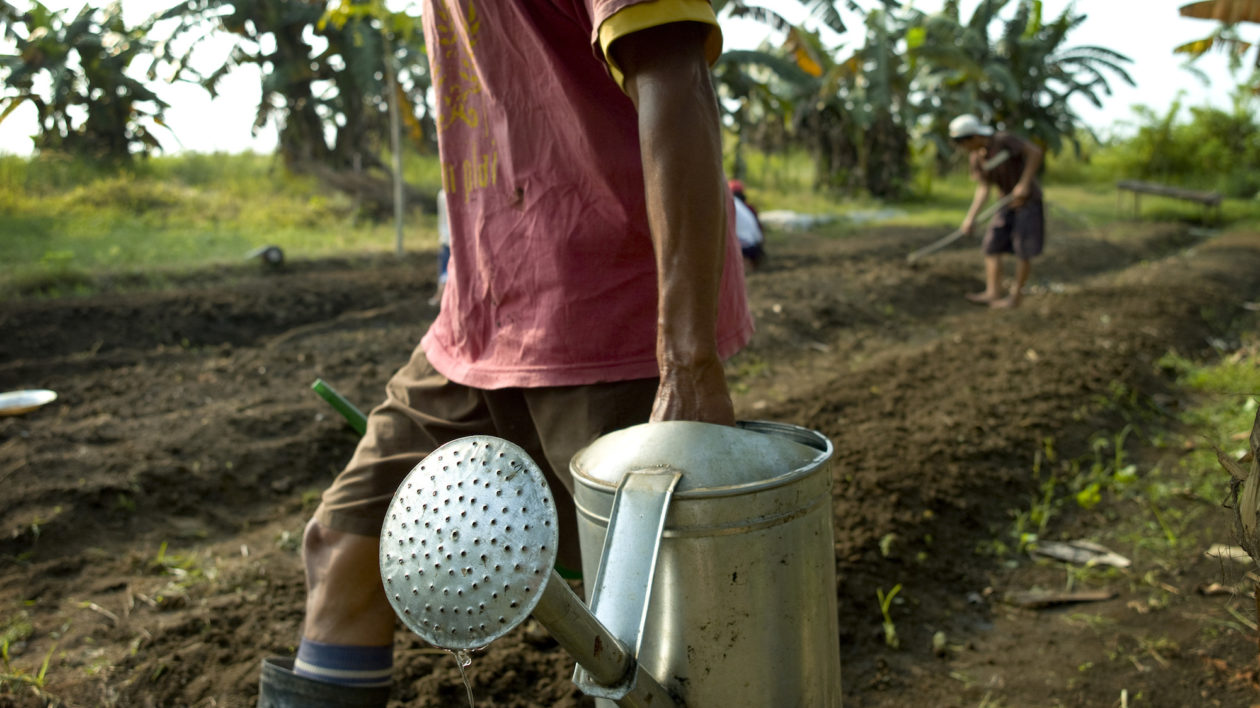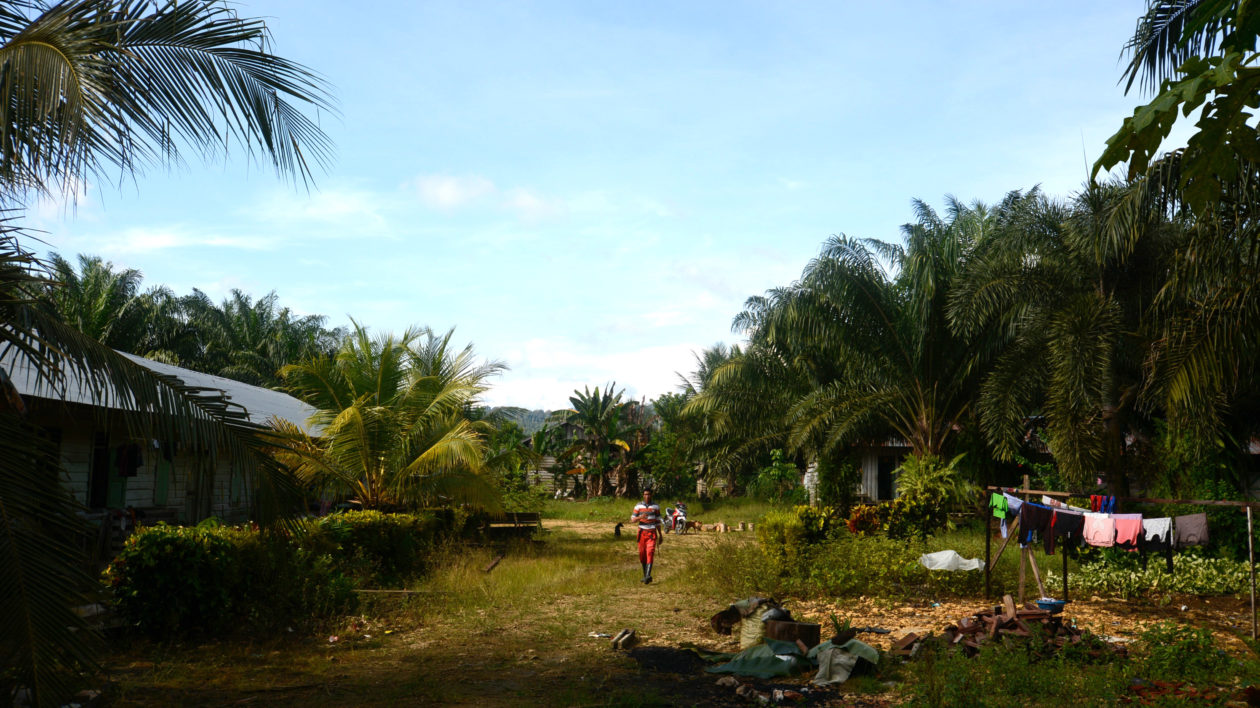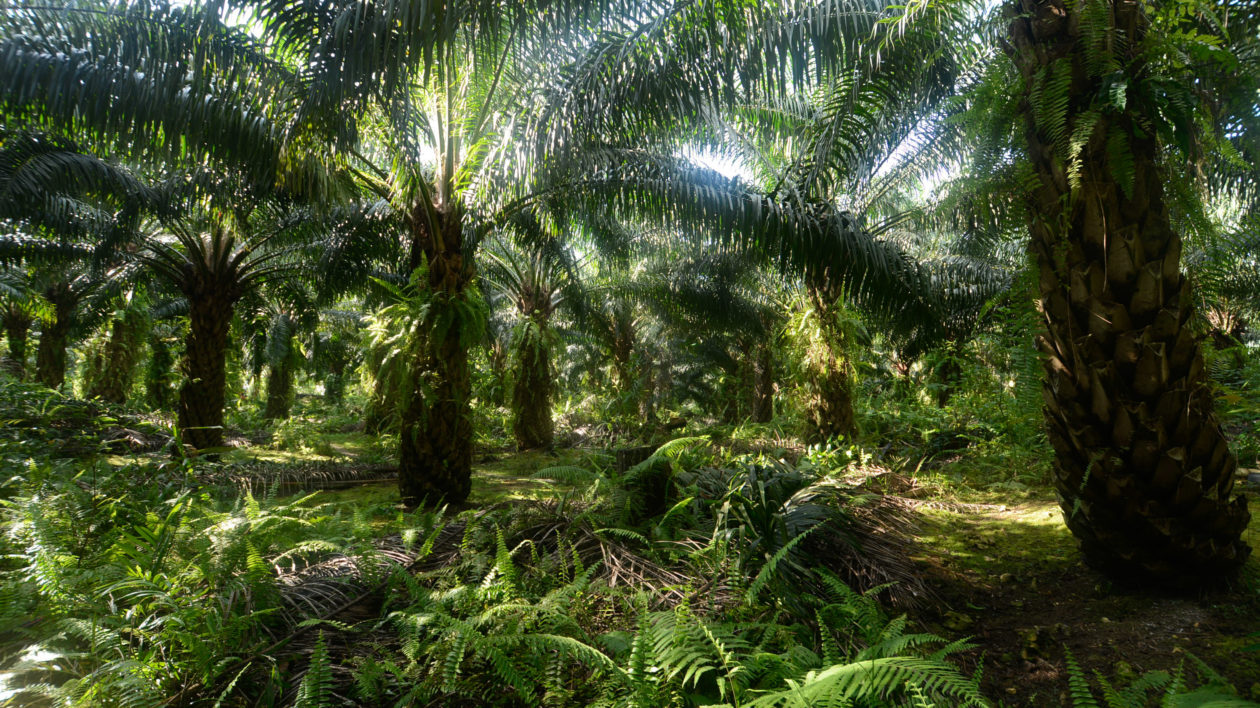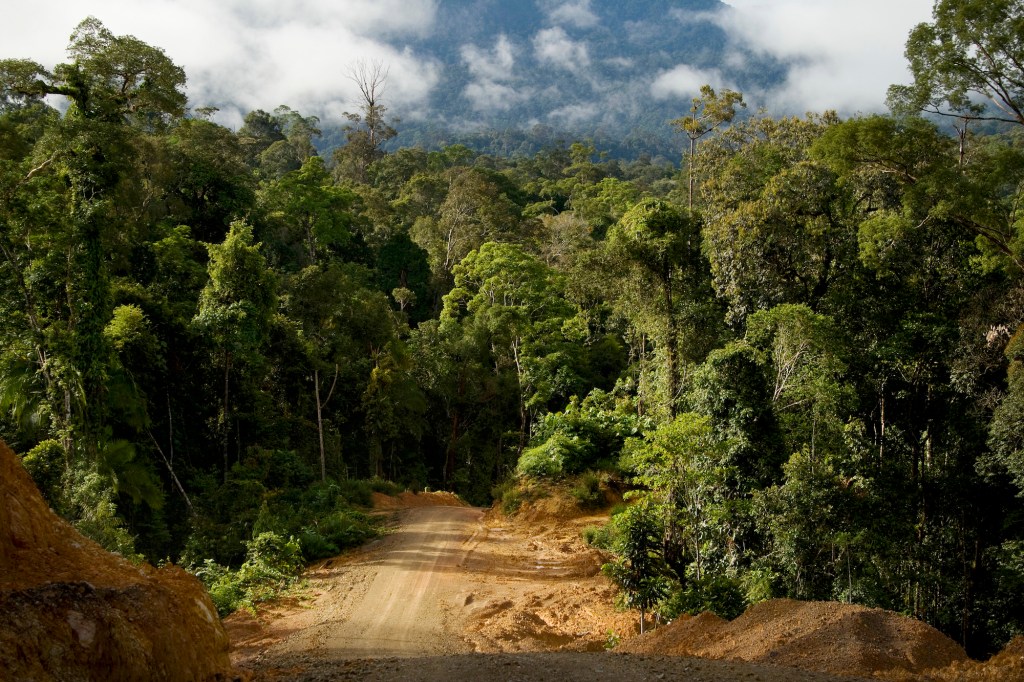It’s common knowledge that rainforests are falling at rapid pace, threatening the incredible biodiversity living within them. But these forests also provide critical services for people.
Widespread forest clearing in Indonesia could be putting people’s health at risk. New research from The Nature Conservancy shows that villagers living in recently fragmented landscapes are more likely to report an increase in local temperatures, signaling a loss of the forest’s cooling services. This, in turn, could lead to increased heat stress among local residents.
The Cooling Power of Forests
On a hot day, a shady tree is the perfect respite from the summer sun. But trees do far more to cool the air around them besides block the sun’s rays. Every tree is like a slow-motion fountain, drawing water from the ground through its roots, into its trunk, and finally into the leaves, where it evaporates into the air.
“That process has considerable cooling power,” explains Nick Wolff, a climate change scientist at The Nature Conservancy. “In fact, a single tree in the tropics is the equivalent of 2 medium-size air conditioners.”
That cooling power is critical for people living in the rural tropics, particularly in less-industrialized countries like Indonesia. In Indonesian Borneo, rural communities often live without access to air conditioning and make a living through subsistence farming or other work requiring extended time outside, including selective logging or working on fiber and oil palm plantations. All of this makes rural Indonesians — and others living in similar latitudes — vulnerable to heat stress and heat illness.
Heat stress occurs when a person spends too much time in a hot environment, causing them to lose large amounts of water and salts through sweating. Some of the symptoms include nausea, vomiting, cramps, or dizziness. In extreme cases heat stress will progress to heat stroke, where the body loses its ability to cool itself, causing organ systems to shut down and often resulting in death if left untreated. Long-term exposure to heat stress can compromise the immune system, exacerbating underlying conditions and increasing susceptibility to disease.
“Most of the research on heat stress and heat illness has been done on urban settings in industrialized countries,” says Wolff, “but there are very few studies from rural settings, especially in the tropics.”
That paucity of data even extends to accurate temperature records. While high-resolution temperature data are ubiquitous in places like the United States, they are less common in Indonesia and other less-industrialized nations, particularly in rural areas. So scientists wanting to understand how climate change or land-use change might impact public health have little to go on.

From Orangutans to Ecosystem Services
Wolff’s research originated, somewhat unexpectedly, from orangutan conservation efforts. In 2008 and 2009, the Conservancy surveyed more than 4,600 people across nearly 500 villages in Kalimantan to gain a better understanding of how rural people interacted with orangutans. But the villagers were also asked an open-ended question about the importance of forests for health, and 35 percent responded that forests provide cooling services.
“We thought, wow, something is going on here and we need to dig deeper,” says Wolff. “We wanted to understand what was driving that response — whether there was something happening with the local temperatures, or deforestation, or something else?”
To answer that question, Wolff and his colleagues combined satellite temperature data with maps of canopy cover and land-use change in a 10-kilometer circle around each of the nearly 500 survey villages. They compare those maps with the village survey data, looking to see if there was a correlation between any of those factors and local perceptions of forest cooling services.
“What we found is that those villagers living in the most fractured and fragmented landscapes were more likely to notice the absence of cooling services,” says Wolff.
Their results, published in Global Environmental Change, also show that villages that had experienced recent deforestation were more likely to notice the loss of cooling. “As the landscape becomes more deforested, they don’t notice or comment on it as much,” says Wolff. “They get used to it.”
The more time that passes after deforestation or fragmentation, the less likely people are to remember how much they benefited from the forests’ ecosystem services. Wolff says that this phenomenon — known as shifting baseline syndrome — is particularly concerning because as people forget the values that the forests provide, they’ll be less likely to protect them.
Wolff adds that their results likely underestimate just how much cooling Indonesia’s forests provide. The satellite temperature data that the team used only measures temperature at the top of the forest canopy, which doesn’t capture the added cooling effect from shade beneath the trees. So even though they were able to detect a clear increase in temperature in open landscapes, following deforestation, that difference is likely much greater than the data currently show.

From Perceptions to Reality
This research only documents a link between deforestation and people’s perceptions about temperature. “But humans are good at perceiving change in their environment,” says Wolff, “so perception data can be a real harbinger of more serious issues.”
The concern is that these perceptions accurately reflect ongoing human health impacts of deforestation and land conversion in Borneo. As broad tracts of oil palm and pulp paper plantations rapidly replace forests, Indonesia recently led Brazil in having the highest rates of deforestation in the tropics. Between 2000 and 2010, the country lost 840,000 hectares of forest per year, accounting for 56 percent of all forest cover loss in Southeast Asia.
Aside from losing biodiversity and other ecosystems services, deforestation and fragmentation can impact both public health and economic security. In increasingly hot environments, people naturally adjust when and how they work by working fewer hours, slowing down as they work, or even changing jobs to avoid the heat. “One possibility is that their overall productivity decreases and their incomes decrease, which can have long-term livelihood impacts,” says Yuta Masuda, a sustainable development and behavioral scientist at the Conservancy. “In the worst-case scenario, this could lead to adverse economic impacts for the region and country.”
Climate changes adds an additional threat to the equation, particularly for the tropics. “The tropics have little variation in seasonal temperature, so even a small increase in temperatures drives things outside of the normal range faster that other places,” says Wolff. “There’s a physiological limit to what people can stand, and in the tropics they’re already living close to it.” The same problem likely applies to other tropical forest regions across Southeast Asia, South America, and Africa.

Forthcoming collaborative research from the team will investigate the physiological effects of working in forested versus fragmented landscapes, and how those effects impact people’s behavior and livelihoods. “We need more data on the ground from these data-poor regions to understand how climate and deforestation are actually impacting productivity and health,” says Masuda.
The team also hope their results will raise awareness of the importance of forest conservation to new stakeholders in Indonesia and other tropical geographies. “There are strong arguments for protecting forests for their biodiversity and carbon values, but deforestation will also have broader impacts on rural people,” says Wolff. “We’re hopeful that this research will resonate with people that don’t usually think about how deforestation can directly impact human health or livelihoods.”
The trick, he says, is to find a combination of working and forested lands that allows Indonesia to meet their economic needs while still retaining forests and their critical ecosystem services. Without such a balance, deforestation could be a public health crisis in the making.




Join the Discussion